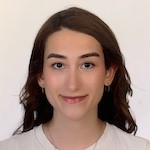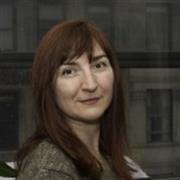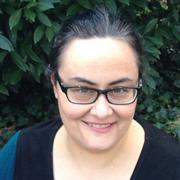2024 Dahod Awards Announced
In August 2008, Shamim Dahod (CGS’76, CAS’78, CAMED’87) and her husband Ashraf gave $10.5M to the school to establish the Shamim and Ashraf Dahod Breast Cancer Research Center, as well as these programs and endowments. Here are the 2024 recipients of the Dahod Assistant Professorship, Dahod International Scholar, and the Dahod Pilot Grant Program Fund.
Dahod Assistant Professorship
 Samuel Beck, PhD, assistant professor of dermatology, aims to unravel the role of epigenetic alterations in breast cancer development. He will investigate how disruptions in epigenetic gene regulation contribute to breast cancer tumorigenesis by analyzing big data through a unique perspective called CGI-mediated dual-mode gene regulation.
Samuel Beck, PhD, assistant professor of dermatology, aims to unravel the role of epigenetic alterations in breast cancer development. He will investigate how disruptions in epigenetic gene regulation contribute to breast cancer tumorigenesis by analyzing big data through a unique perspective called CGI-mediated dual-mode gene regulation.
Dahod International Scholar
 Asya Akca, MD, a postdoctoral fellow in the laboratory of Neil Ganem, is focused on defining the transcriptomes of pre-malignant whole genome doubled mammary epithelial cells isolated directly from mammary tissues. As more than half of all breast cancers are thought to arise from whole genome doubled cells, understanding the biology of such cells may provide important mechanistic insights into breast tumorigenesis.
Asya Akca, MD, a postdoctoral fellow in the laboratory of Neil Ganem, is focused on defining the transcriptomes of pre-malignant whole genome doubled mammary epithelial cells isolated directly from mammary tissues. As more than half of all breast cancers are thought to arise from whole genome doubled cells, understanding the biology of such cells may provide important mechanistic insights into breast tumorigenesis.
Dahod Pilot Grant Awardees
 Alla Grishok, PhD, associate professor of biochemistry & cell biology, investigates how small RNA molecules regulate genes. An enzyme, Dicer, normally produces small RNAs in cell cytoplasm. However, in triple-negative breast cancer cells, Dicer shows strong nuclear localization. The Grishok lab will test the hypothesis that nuclear Dicer generates small RNAs activating cancer-associated transcriptional networks in triple-negative breast cancer. Small RNAs are promising drug targets for cancer treatment and this mechanistic work may identify novel RNA molecules for therapeutic inhibition.
Alla Grishok, PhD, associate professor of biochemistry & cell biology, investigates how small RNA molecules regulate genes. An enzyme, Dicer, normally produces small RNAs in cell cytoplasm. However, in triple-negative breast cancer cells, Dicer shows strong nuclear localization. The Grishok lab will test the hypothesis that nuclear Dicer generates small RNAs activating cancer-associated transcriptional networks in triple-negative breast cancer. Small RNAs are promising drug targets for cancer treatment and this mechanistic work may identify novel RNA molecules for therapeutic inhibition.
 Deborah Lang, PhD, associate professor of dermatology, investigates how PAX-proteins regulate gene expression. PAX-proteins are important regulators in determining how cells become specific cell types, and this function becomes corrupted in cancers to promote growth. While PAX-proteins regulate genes at a DNA level, Dr. Lang’s team discovered that they may also block growth-inhibitory RNAs. The Lang team will examine how PAX-proteins promote breast cancer growth by targeting anti-cancer RNAs and may reveal a novel pathway that may be vulnerable to therapeutic targeting.
Deborah Lang, PhD, associate professor of dermatology, investigates how PAX-proteins regulate gene expression. PAX-proteins are important regulators in determining how cells become specific cell types, and this function becomes corrupted in cancers to promote growth. While PAX-proteins regulate genes at a DNA level, Dr. Lang’s team discovered that they may also block growth-inhibitory RNAs. The Lang team will examine how PAX-proteins promote breast cancer growth by targeting anti-cancer RNAs and may reveal a novel pathway that may be vulnerable to therapeutic targeting.
 Ignaty Leshchiner, PhD, assistant professor of medicine, will study the mechanisms of diabetic exosome induced reprogramming of tumor cells that increase metastatic potential of breast cancer. Population studies reveal that women with comorbidities like obesity and diabetes face an increased risk of distant metastases in breast cancer. Adipocytes adjacent to the tumor have been known to alter their secretion patterns in conditions of obesity and insulin resistance, also altering the content of exosomes they shed to the blood stream.
Ignaty Leshchiner, PhD, assistant professor of medicine, will study the mechanisms of diabetic exosome induced reprogramming of tumor cells that increase metastatic potential of breast cancer. Population studies reveal that women with comorbidities like obesity and diabetes face an increased risk of distant metastases in breast cancer. Adipocytes adjacent to the tumor have been known to alter their secretion patterns in conditions of obesity and insulin resistance, also altering the content of exosomes they shed to the blood stream.
Congratulations!
View all posts